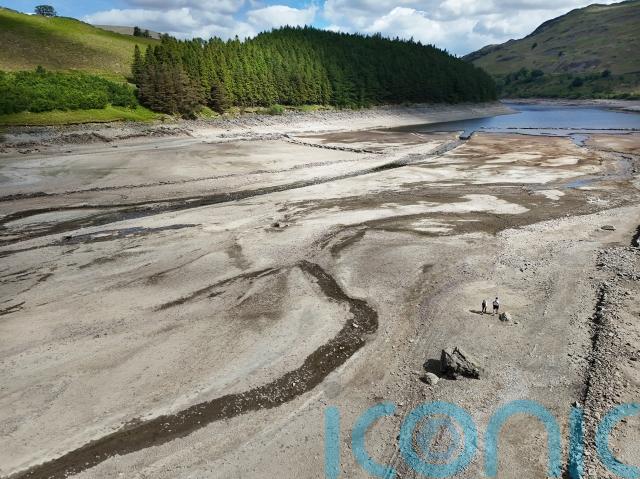
The north west of England is now in drought due to low water levels in reservoirs and rivers following one of the driest springs on record.
The Environment Agency (EA) said Greater Manchester, Merseyside and Cheshire, and Cumbria and Lancashire, have moved from “prolonged dry weather” to “drought” status.
Despite recent rain, water levels in the region remain low, the Environment Agency said, although no other areas of the country are in drought.
A spokesperson said: “The north west of England has entered drought status due to low water levels in reservoirs and rivers.
“No other areas in England are in drought and we continue to monitor the situation closely.”
The agency also said hosepipe bans were a matter for water companies but they were expected to follow their drought plans, taking appropriate steps to reduce demand and leakage, to ensure more water is left in the environment for farmers and wildlife.
The EA said it continued to regulate the region’s water company, United Utilities, to operate within their agreed action plan to make use of available water while protecting the environment.
Officials warned that periods of dry weather could have consequences for wildlife, including killing fish, more algal blooms and low rivers preventing species from moving up or downstream, as well as limiting water resources for those who need them.
A United Utilities spokesperson said: “We are grateful for the support of customers as we’ve seen demand reduce thanks to their efforts in saving water where they can, combined with more recent rainfall and cooler temperatures.

“Reservoirs, however, are still lower than we’d expect at this time of year and so we’re continuing to move water around our integrated network to get it to where it is needed, as well as bringing extra water into the system from other sources around the region.
“Leakage is at its lowest level and we’re repairing record volumes, with customers supporting us by reporting more leaks and we’d ask that they continue to do that as well as doing all they can to save and recycle water, to help protect their local environment.”
Experts warned that the north west of England had seen an exceptionally dry spring, and that drought conditions would become more intense in the UK with climate change – putting strain on water resources.
Dr Jess Neumann, associate professor of hydrology at the University of Reading, said the north west of England had seen the driest spring in nearly 100 years, which had led to low water levels in reservoirs and rivers.
“The north west of the country is reliant on reservoirs to source around two-thirds of its water supply.
“The 2025 drought is serious – reservoir levels are well below what they should be at this time of year.
“This raises important questions about how water will be managed this summer, but also going forward long term.
“Water is becoming a scarce resource and the UK supply is under significant stress,” she warned.
The news the north west of England had moved into drought status comes as the Government announced plans to fast-track the approval of major new reservoirs, warning drinking water supplies would run out in the next decade without action to boost water infrastructure.
Officials blamed rapid population growth, crumbling assets and a warming climate for pressure on water supplies, and admitted new reservoirs would not come online for a decade or more.
Prof Hayley Fowler, professor of climate change impacts at the University of Newcastle, said the dry and drought conditions the UK was experiencing were consistent with what was expected from climate models, especially in the summer months.
“With global warming we expect more prolonged and intense droughts and heatwaves punctuated by more intense rainfall, possibly causing flash floods.
“In recent years, we have experienced more of these atmospheric blocks, causing record heat and persistent drought,” she said.
Subscribe or register today to discover more from DonegalLive.ie
Buy the e-paper of the Donegal Democrat, Donegal People's Press, Donegal Post and Inish Times here for instant access to Donegal's premier news titles.
Keep up with the latest news from Donegal with our daily newsletter featuring the most important stories of the day delivered to your inbox every evening at 5pm.